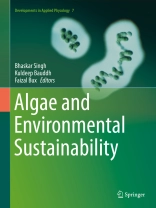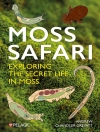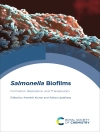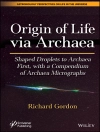This book presents the dynamic role of algae in a sustainable environment. Two major aspects, namely bioenergy and bioremediation, have been elaborated in various chapter contributed by scientists and teachers from different geographical areas throughout the world. Algal biofuels is an emerging area of equal interest to researchers, industries, and policy makers working or focusing on alternative (i.e. renewable) fuels. Algae have been an area of interest due to their wide range of applications. Over the last 5 decades, eukaryotic algae have been used in the aquaculture industry as feed for invertebrates, providing a rich source of antioxidants, dietary fiber, minerals and protein. More recently, there has been a focus on the use of algal biomass in the development of alternative fuels. The extraction of oil from algae has been widely explored as a much more viable feedstock than plant-based oils in large-scale fuel production. using algae as feedstock has the advantages that it doesn’t require arable land and that wastewater can be used as a source of nutrients in their culture. The multifunctional approach of algae includes pollution remediation, carbon sequestration, biofuels production, and delivery of value-added products. However, there are still some obstacles that need to be overcome to make their use as potential feedstock for biofuels techno-economically feasible. In order to maintain the sustainability aspect of
algal biofuels, various aspects have to be studied and critically analyzed to assess the long-term sustainability of algal derived biofuels.
This book discusses the role of algae as a promising future feedstock for biofuels. They are known to sequester carbon in much larger amounts than plants and as such the book also describes their phycoremediation potential for conventional as well as emerging contaminants. It describes the role of anaerobic digestion in algal biorefineries; bioreactions and process parameters; biogas recovery and reuse. The role of algal biofilm based technology in wastewater treatment and transforming waste into bio-products is discussed, and remediation of sewage water through algae is assessed. The book also describes the production of biohydrogen, bio-oil, biodiesel; and the major bottlenecks in their usage. The emerging characterization techniques of these biofuels (bio-oil and biodiesel) are described, as are the decolorizing potential of algae and the genetic engineering techniques that could enhance the production of lipids in algae. Other aspects of the book include the role of remote sensing technology in the monitoring of algae and a life cycle assessment of algal biofuels.
Jadual kandungan
1. ALGAE: Promising Future Feed stock for Biofuels.- 2. Phycoremediation: Future Perspective of Green Technology.- 3. Applications of algal biofilms for wastewater treatment and bioproducts production.- 4. Biofuel production along with remediation of sewage water through Algae.- 5. The role of anaerobic digestion in algal biorefineries: clean energy production, organic waste treatment and nutrient loop closure.- 6. Algae based biohydrogen: Current status of bioprocess routes, economical assessment and major bottlenecks.- 7. Bio-oil and biodiesel as biofuels derived from microalgal oil and their characterization by using instrumental techniques.- 8. Remediation of dyes from aquatic ecosystems by biosorption method using algae.- 9. Bioremediation and decolourization of biomethanated distillery spent wash through Algae.- 10. Genetic engineering tools for enhancing lipid production in microalgae.- 11. Phycoremediation of Emerging Contaminants.- 12. Carbon dioxide sequestration bymicroalgae: Biorefinary approach for clean energy and environment.- 13. Remote Sensing strategy for the study of algal monitoring.- 14. Life Cycle Assessment of Algal Biofuels.
Mengenai Pengarang
Dr. Bhaskar Singh received his Ph.D. in Applied Chemistry from Indian Institute of Technology (BHU), Varanasi, UP, India in 2010. Bhaskar Singh also holds an M.Phil. from Pondicherry (Central) University, India with a gold medal (2006). He is currently serving as an Assistant Professor at Centre for Environmental Sciences, Central University of Jharkhand, Ranchi, India. Dr. Singh is currently engaged in teaching in the thrust area of Environmental Sciences like Environmental Earth Science, Natural Resources, Environmental Chemistry, Environmental Pollution Monitoring & Control technologies, etc. He is reviewer of several international journals viz. Fuel, Renewable Energy, Renewable & Sustainable Energy Reviews (Elsevier Publications). Dr. Singh is serving as Treasurer of Ranchi Chapter of the Society “Professor HS Srivastava Foundation for Science and Society. His current interests lie in the application of algal biomass for biodiesel synthesis, development of heterogeneous and green catalysts, and corrosion aspects of biodiesel fuel. He has published more than 30 research and review papers in peer-reviewed and high impacted international journals and 4 book chapters by International Publishers.
Dr. Kuldeep Bauddh received his Ph.D. in Environmental Science from the Babasaheb Bhimrao Ambedkar University, Lukcnow, UP, India in 2014. He is currently an Assistant Professor of Environmental Science at the Centre for Environmental Sciences, Central University of Jharkhand, Ranchi, India. Dr. Bauddh is currently engaged in teaching the thrust area of environmental sciences like Environmental Pollution and Management, Environmental Chemistry, Environmental Toxicology, Soil Science, Hazardous Waste Management etc. He is also working as Associate Editor of the journal “Climate Change and Environmental Sustainability”
and also Co-editor of the Magazine Kahaar. Dr. Bauddh is serving as Secretary of Ranchi Chapter of the Society “Professor HS Srivastava Foundation for Science and Society”, Joint Secretary of “The Society for Science of Climate Change and Sustainable Environment” and as Executive member of “Professor HS Srivastava Foundation for Science and Society”. His main research areas are phytoremediation, slow release fertilizers and soil reclamation. He has published more than 25 research papers in national and international journals, 3 book chapters 6 popular articles in the national magazines.
Professor Faizal Bux is the Director of the Institute for Water and Wastewater Technology. As a NRF rated researcher, he has more than 25 years’ service at higher education Institutes and has received numerous institutional awards including University Top Senior researcher award and NRF award. Prof. Bux primary research focus includes wastewater treatment, environmental biotechnology, algal biotechnology and biofuels production from waste substrates. He has supervised over 50 Masters and Doctoral students (including current) and 15 post-doctoral fellows served their tenure under his guidance. He served as editor for the following ISI journals: CLEAN Soil Air Water, Environmental Science and Health Part A, Biofuels Research Journal and Water Science and Technology. He has served as a reviewer for over 45 international journals and contributed to more than 85 ISI journal articles, 9 book chapters and over 100 conference presentations (national and international) and editor/co-editor of 4 books. He has acted as project leader for 10 Water Research Commission projects and enjoys an extensive collaboration base with experts both nationally and globally. Prof Bux has served as an invited Member of the Management Committee of the International Water Association (IWA) specialist group Microbial Ecology and Water Engineering (MEWE) and serves on the Executive committee of IWA- SA. He is a Fellow of the Water Institute of Southern Africa. He served on the scientific program committee/Advisory board/Chair/Invited speaker of various national and International conferences and is member of many professional bodies nationally and internationally. He serves as scientific advisor for many NGO’s both in South Africa and internationally.












